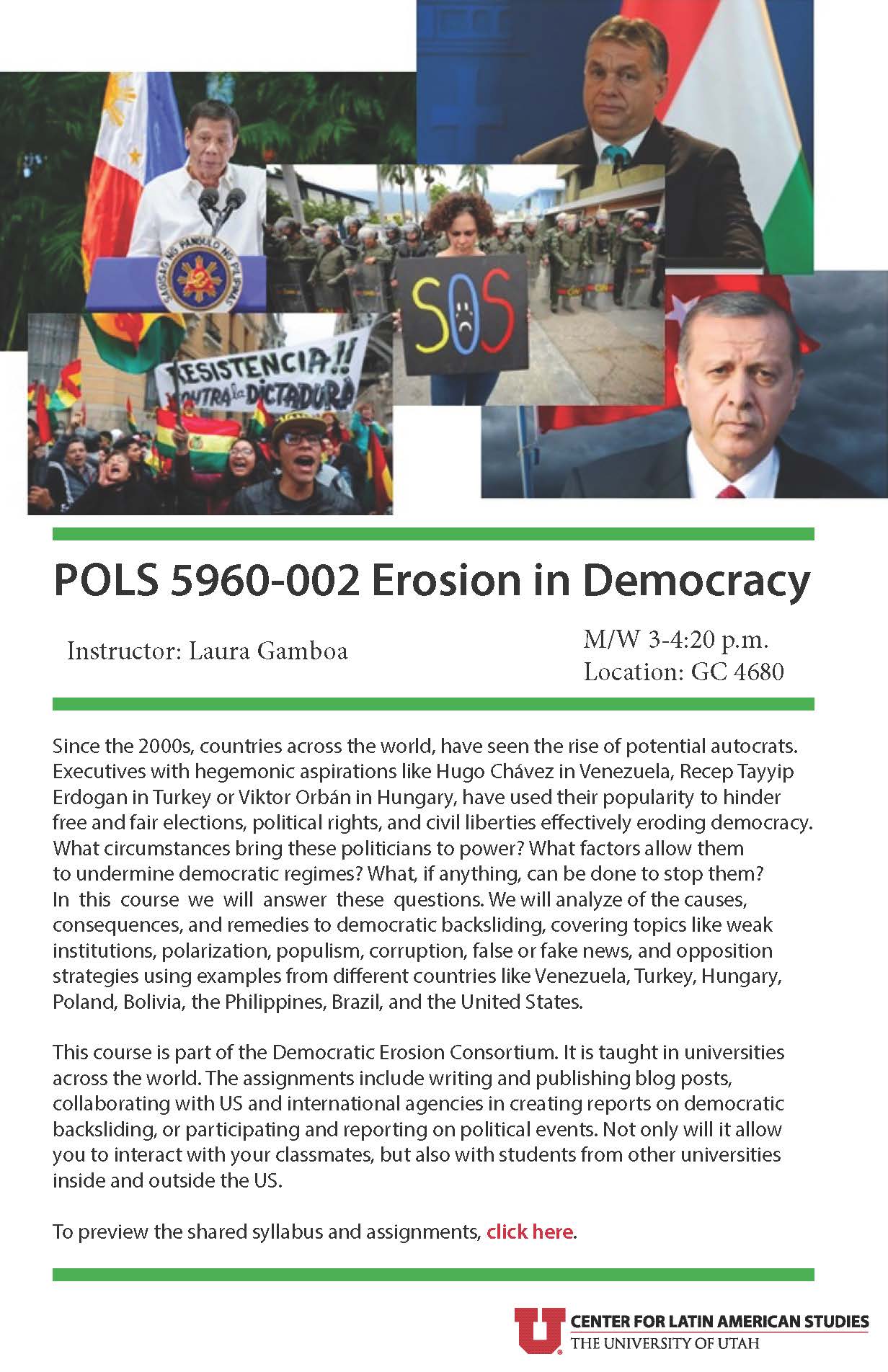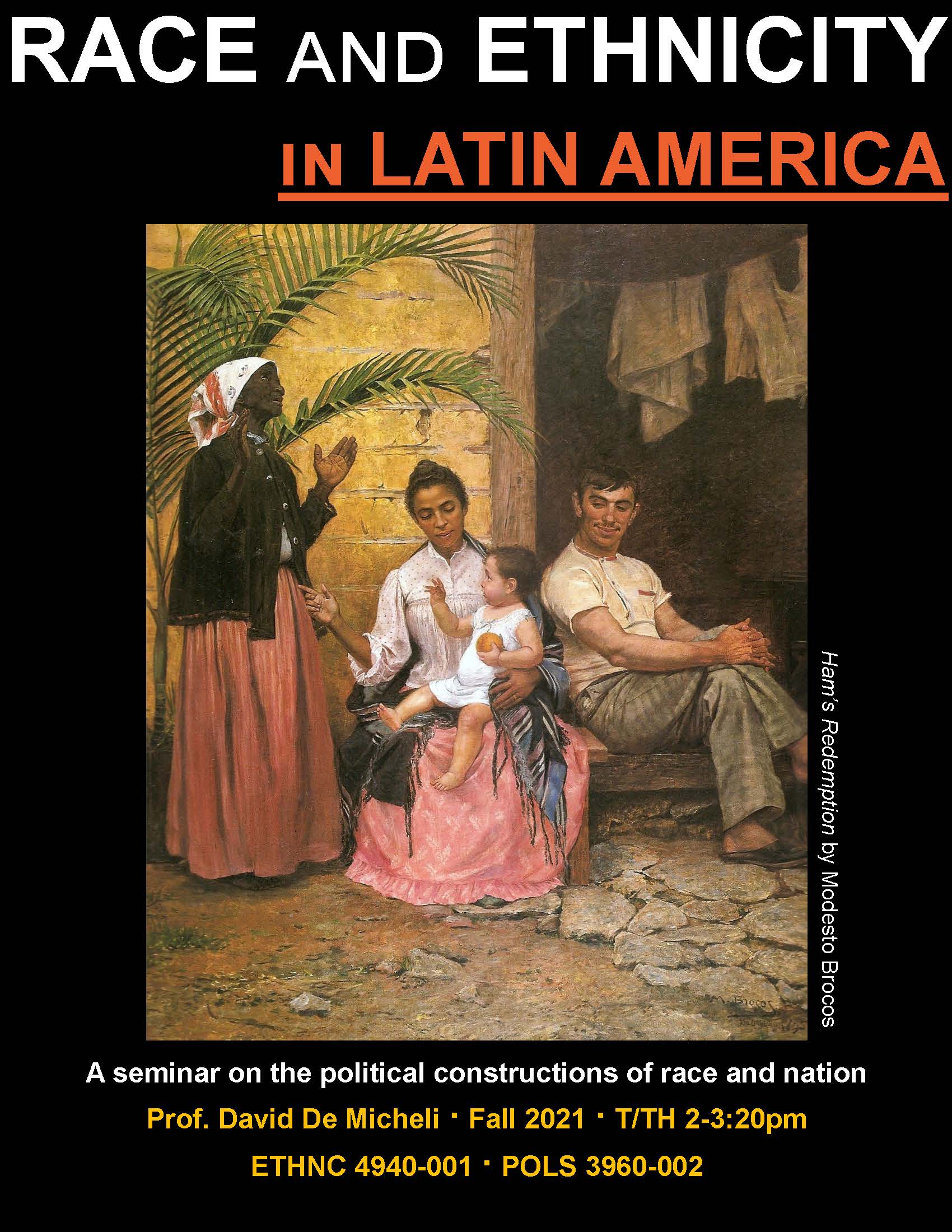Fall 2021 Featured Classes

Erosion in Democracy
POLS 5960-002
Instructor: Laura Gamboa
Days: Monday/Wednesday
Time: 3-4:20 p.m.
Location: GC 4680
Since the 2000s, countries across the world, have seen the rise of potential autocrats. Executives with hegemonic aspirations like Hugo Chávez in Venezuela, Recep Tayyip Erdogan in Turkey or Viktor Orbán in Hungary, have used their popularity to hinder free and fair elections, political rights, and civil liberties effectively eroding democracy. What circumstances bring these politicians to power? What factors allow them to undermine democratic regimes? What, if anything, can be done to stop them? In this course we will answer these questions. We will analyze of the causes, consequences, and remedies to democratic backsliding, covering topics like weak institutions, polarization, populism, corruption, false or fake news, and opposition strategies using examples from different countries like Venezuela, Turkey, Hungary, Poland, Bolivia, the Philippines, Brazil, and the United States.
This course is part of the Democratic Erosion Consortium. It is taught in universities across the world. The assignments include writing and publishing blog posts, collaborating with US and international agencies in creating reports on democratic backsliding, or participating and reporting on political events. Not only will it allow you to interact with your classmates, but also with students from other universities inside and outside the US.
PREVIEW SYLLABUS AND ASSIGNMENTS

Race and Ethnicity in Latin America
ETHNC 4940-001 · POLS 3960-002
Instructor: David de Micheli
Days: Tuesday/Thursday
Time: 2-3:20 pm
Location: GC 4020
This course will focus on the historical constructions of race and ethnicity in Latin America and its consequences for understanding contemporary politics and society. We will follow the historical evolution of these ideas and concepts as social constructs, tracing their origins and variations in Mexico, Brazil, the Andes, and the Caribbean, to name a few. We will also examine the social and political forces (domestic and international) that shaped evolving conceptions of ethnicity and race—and ultimately nationality—in the Americas. We will conclude with the modern period, considering how this region of the world once deemed exceptional for its celebration of race mixture and colorblindness transitioned to one that promotes affirmative action policies and contends with growing ethnoracial mobilization in variety of social and political domains.
